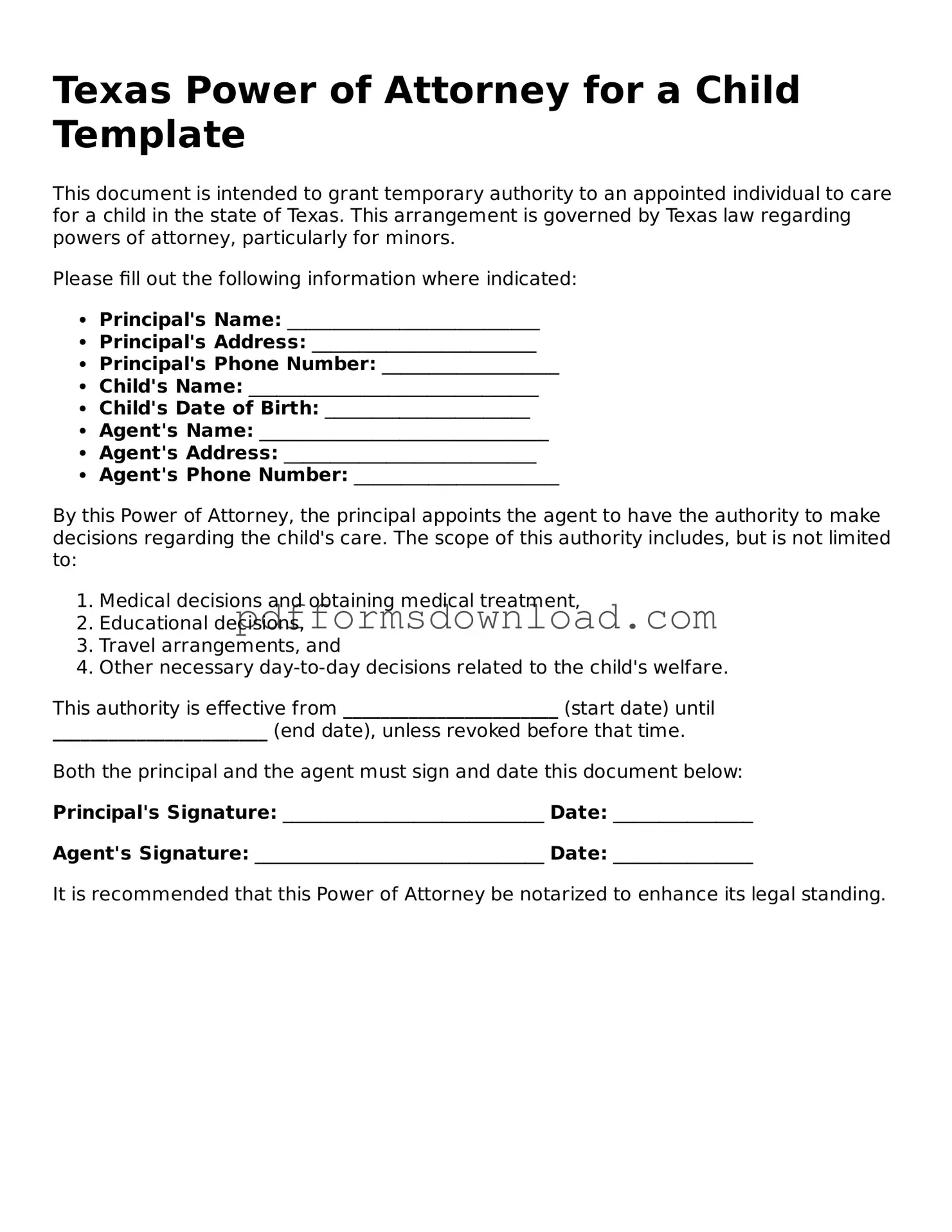What is a Texas Power of Attorney for a Child?
The Texas Power of Attorney for a Child is a legal document that allows a parent or guardian to grant authority to another adult to make decisions on behalf of their child. This can include decisions related to education, healthcare, and general welfare. It is particularly useful in situations where the parent or guardian is unavailable, such as during travel or extended absences.
Who can serve as an agent under this power of attorney?
Any adult can serve as an agent under the Texas Power of Attorney for a Child, provided they are trustworthy and capable of making decisions in the best interest of the child. This could be a relative, family friend, or other responsible adult. However, it is crucial to choose someone who understands the responsibilities involved and is willing to act in the child's best interests.
How long does the Power of Attorney for a Child remain in effect?
The power of attorney can remain in effect for a specified period, as determined by the parent or guardian when completing the document. It can also be revoked at any time, as long as the parent or guardian provides written notice to the agent and any relevant parties. If no expiration date is specified, the authority typically lasts until the child reaches the age of 18 or until it is revoked.
Do I need to have the document notarized?
Yes, the Texas Power of Attorney for a Child must be signed in the presence of a notary public. This step is essential to ensure the document is legally valid and recognized by institutions such as schools and healthcare providers. Notarization adds a layer of authenticity and helps prevent potential disputes regarding the authority granted.
Can I use this form if I am not the child's biological parent?
Yes, non-biological parents or guardians can use the Texas Power of Attorney for a Child. However, they must have legal authority over the child, such as through adoption or guardianship. It is important to ensure that the person granting the power of attorney has the legal right to do so.
What decisions can the agent make on behalf of the child?
The agent can make a variety of decisions, including those related to education, healthcare, and general welfare. This may involve enrolling the child in school, consenting to medical treatment, or making day-to-day decisions regarding the child's care. However, the specific powers granted can be limited or expanded based on the preferences of the parent or guardian.
Is there a specific form I need to use for this power of attorney?
While there is no official state form mandated for the Texas Power of Attorney for a Child, it is advisable to use a template that complies with Texas law. Templates are often available online or through legal resources. Ensuring the document meets legal requirements is essential for it to be effective.
What happens if the power of attorney is not honored?
If the power of attorney is not honored by schools, healthcare providers, or other institutions, it may lead to complications regarding the child's care and decision-making. It is important to communicate the existence of the power of attorney to relevant parties and provide them with a copy of the document. If issues arise, legal recourse may be necessary to enforce the authority granted.
Can I revoke the Power of Attorney for a Child?
Yes, the parent or guardian can revoke the Power of Attorney for a Child at any time. This must be done in writing and communicated to the agent and any institutions that were provided with the original document. It is advisable to keep a record of the revocation for future reference to avoid any confusion.

